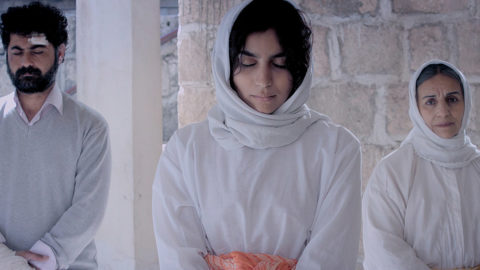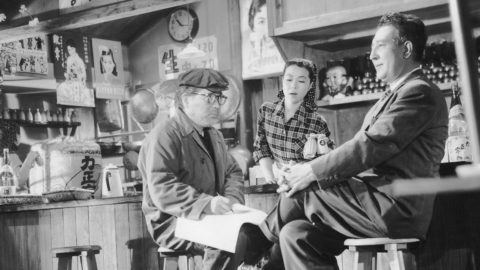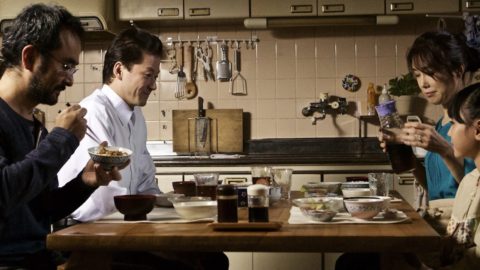By Jordan Cronk in the May-June 2017 Issue
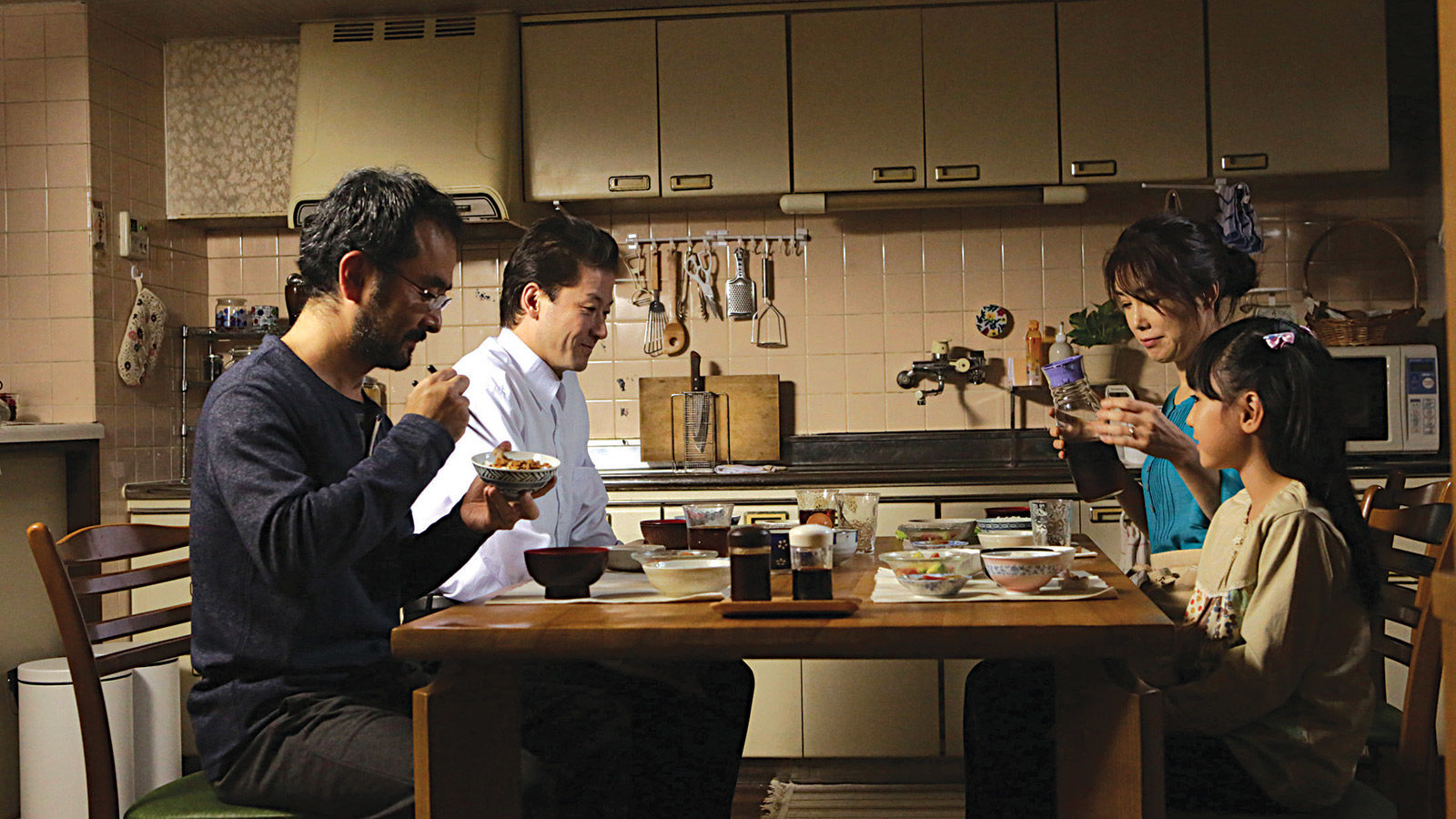
Review: Harmonium
(Koji Fukada, Japan/France,
Film Movement, Opens June 16)
In less than a decade, Japanese director Koji Fukada has proven himself one of cinema’s most exacting purveyors of domestic disequilibrium. In his 2010 sociopolitical comedy Hospitalité, the home of a Japanese print-shop owner and his young wife is overrun by a pair of unruly houseguests and a band of foreigners seeking shelter. The less outwardly calamitous Au revoir l’été (2013), turns a Rohmer-esque tale of a young woman vacationing at her aunt’s seaside home into a subtle portrait of casual duplicity amongst acquaintances. Harmonium, Fukada’s latest and the winner of the Un Certain Regard Jury Prize at the 2016 Cannes Film Festival, likewise pivots on the arrival of an unexpected guest. But rather than employ the setup for humorous or bittersweet insights, Fukada distills the conceit into his most harrowing, tragic parable to date.
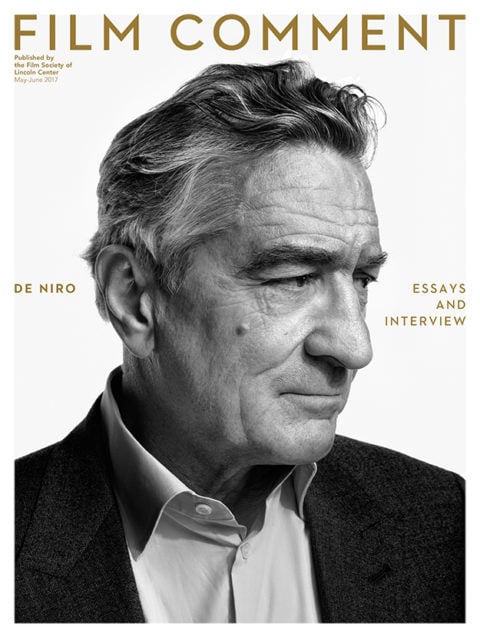
From the May-June 2017 Issue
Also in this issue
When the svelte, stone-faced Yasaka (Tadanobu Asano), newly released from prison following an extended stint for murder, shows up unannounced at the home of Toshio (Fukada regular Kanji Furutachi), he’s curiously welcomed and given a job at his former friend’s workshop. Stoic yet seductive, Yasaka quickly ingratiates himself to Toshio’s family, including his apprehensive wife Akié (Mariko Tsutsui) and his adolescent daughter Hotaru (Momone Shinokawa), who bonds with the stranger over a shared love of music (the two spend evenings playing Hotaru’s harmonium together). As the family slowly grows into a foursome, sharing meals and even vacationing with increasing conviviality, unsettling details of Toshio and Yasaka’s past relationship come to the fore, while Yasaka and Akié begin to make romantic overtures toward one another, rendering the already precarious new dynamic unsustainable.
Harmonium’s second half jumps eight years into the future following a distressing episode in which an offscreen act of violence leaves the young Hotaru paralyzed while sending the seemingly guilty Yasaka into hiding. Here focus shifts to Akié and her own slow realization that her seemingly idyllic marriage has held dark secrets that may be irreconcilable with the life and home she hopes to maintain. As in many of his films, Fukada exploits his narrative’s genre proximities for a more elemental tension. Much of the film plays out quietly, with just the faintest hint of piano and string accompaniment. Interior sequences maintain a compositional strategy of mostly static camera setups and stark, shadowy lightning schemes. Outdoors, a dreamier sensibility takes hold as cinematographer Ken’ichi Negishi maps a series of extended tracking shots that instill a sense of suspended terror as the characters negotiate a web of temptations and transgressions. In a manner reminiscent of Japan’s most notable steward of suburban terror, Kiyoshi Kurosawa, whose Tokyo Sonata similarly contrasts a child’s musical constitution with a father’s inability to maintain familial harmony, Fukada locates an effective formal language to articulate the vagaries of a decidedly askew universe.
It’s the arrival of an additional outside character, one with unexpected ties to Yasaka, that ultimately prompts a decisive reckoning and takes the film firmly into the realm of psychological horror, an initially discouraging turn that eventually opens an intriguing metaphysical dimension in the film’s otherwise primal fabric. In this light, curious details such as a young Hotaru’s concern for the fate of female spiders who sacrifice themselves for the sake of their offspring, or the surreal sights that punctuate the family’s climatic brush with atonement, take on an acute retroactive intrigue, suggesting that the fate of these characters lies well outside the bounds of corporeal consequence. If by the end Fukada seems to be encouraging the viewer to question the veracity of what they’ve seen and heard, the results are no less powerful for such ambiguities.
Harmonium will screen at the Film Society of Lincoln Center.
Jordan Cronk is a critic and programmer based in Los Angeles. He runs the experimental screening series Acropolis Cinema and is co-artistic director of the Locarno in Los Angeles Film Festival.



